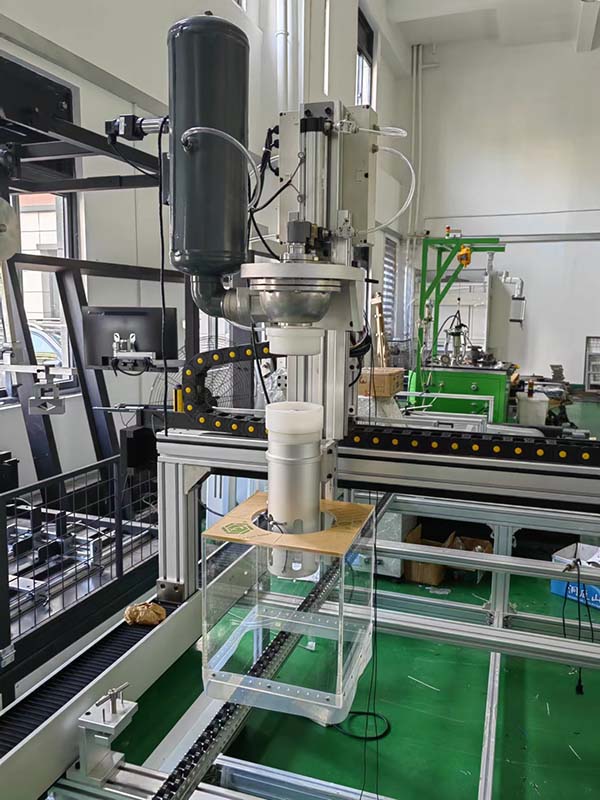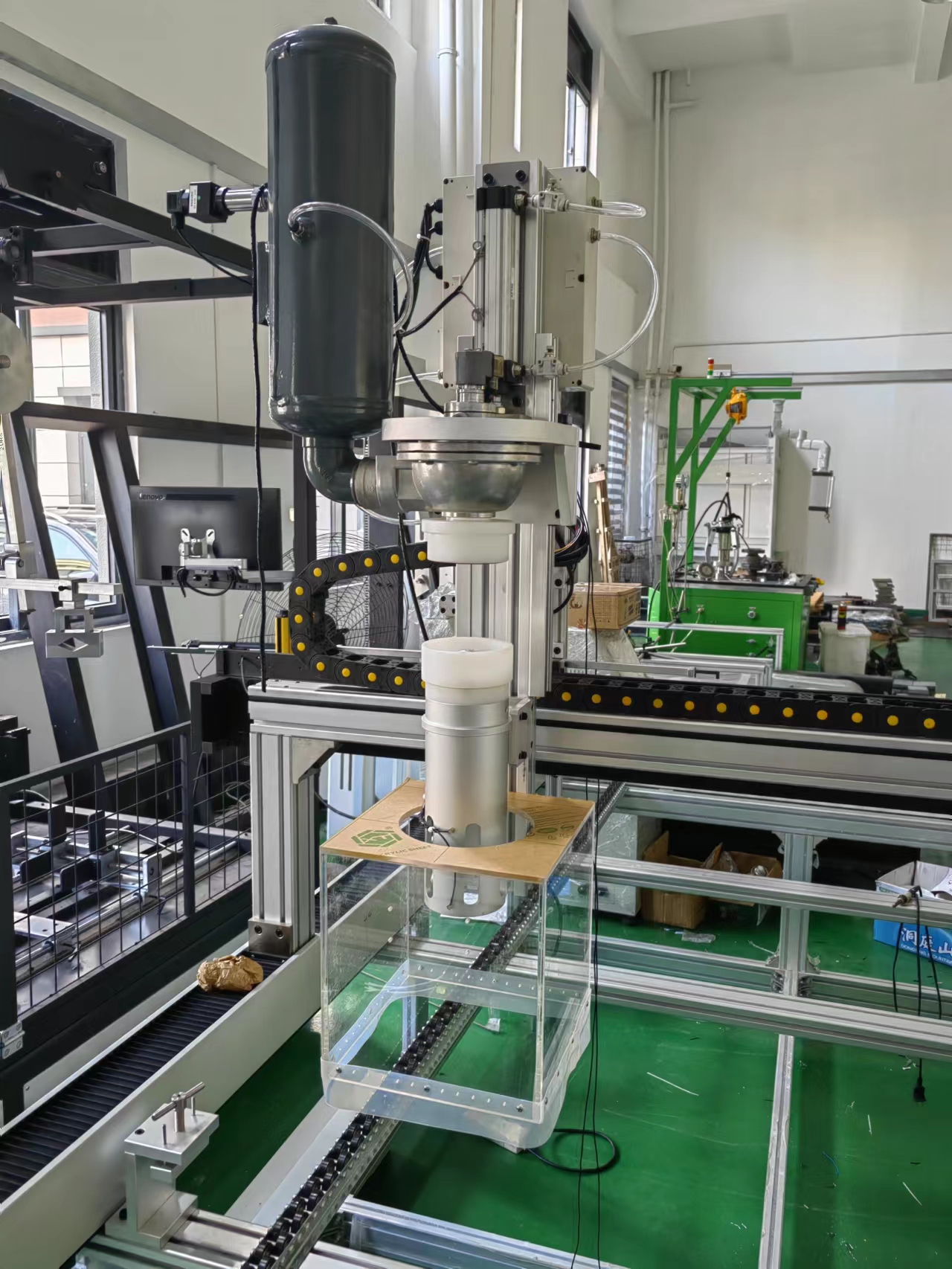
HF-7073A Hail Impact Testing Machine
I.Equipment Specifications;
1.Pneumatic Launch System:
The power source is compressed air, requiring an air storage unit to store and regulate air pressure. The velocity of the ice ball launched from the barrel can be adjusted by changing the air pressure. The pneumatic launch system requires supporting hardware, including a high-pressure air source, pressure regulation devices (pressure regulator and cylinder), air tubing, and solenoid valves.
2.Mechanical Movement System:
The barrel position is adjusted via a microcomputer-controlled mechanical drive system. The system uses a stepper motor for transmission, which offers rapid and precise positioning. It can achieve positioning requirements in an extremely short time, with a positioning accuracy of less than 1 mm and a cumulative experimental error of less than 5 mm—well within the IEC standard tolerance of ±10 mm—ensuring the reliability of the test.
3.Sample Mounting Fixture:
The mechanical movement system and sample fixture are designed based on the size of the test sample.
II.Hail Impact Testing Machine – Test Principle
An air compressor compresses air into a storage tank. A pressure gauge is connected externally to a gun barrel with a standardized inner diameter, with a pneumatic valve installed at the connection point. The valve is controlled by a large solenoid valve.
A photoelectric speed measurement device is installed at the front end of the launching barrel. By adjusting the pressure gauge, the ice ball can reach the standard-required impact velocity.
Ice ball molds are customized according to customer-specified diameters. The formed ice ball is placed into the gun barrel, and when the solenoid valve is activated, the compressed air propels the ice ball to strike the photovoltaic module at the standard velocity.
After the impact at the designated test point on the module, the following assessments are conducted: appearance inspection, maximum power output test, and insulation resistance test. The quality of the module is then determined based on these results.
